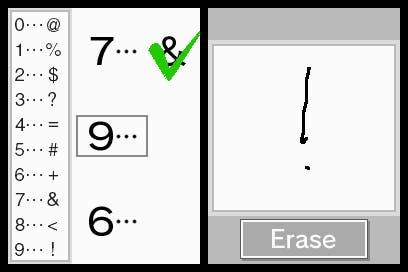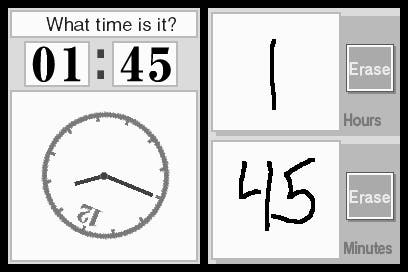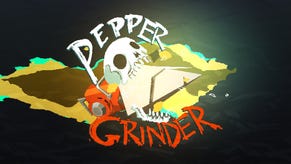More Brain Training from Dr. Kawashima: How Old Is Your Brain?
Impeccable gaming logic.
It's a little known fact about me that I came fifth in my year at the University of Oxford. That's something that only my close family and a few friends know. It's not something that I boast about down the pub, after a few beers. It's also not something I slip into any conversation with any stranger at the earliest available opportunity. And it's certainly not something I'd ever dream of boasting about to a few million people on the internet under the guise of commencing a videogame review. But yes, if you must know, I got the fifth highest first class degree in the school of modern history in 1997. And everyone knows you can't get better than fifth. And that was back when exams were difficult. So obviously I'm massively clever. Or massively good at history.
Personally, I reckon it probably means I'm massively clever. After all, how else would I have managed to achieve a magnificent time of 13.11 seconds on Dr Kawashima's Calculations x20. Or 1 minute 12.36 seconds on his Calculations x100. Or an incredible 34 seconds on Time Lapse. In fact I could just list all my best times here, but since we've already established that I'm not the type to boast about my admittedly prodigious intellectual prowess, I'm not going to. But I think it's pretty clear that Eurogamer made the right decision when they sent me along to Nintendo's Wii Flat to review More Brain Training. Or More Brain Training from Dr. Kawashima: How Old Is Your Brain? to give the game its full title.
If you've played the first game, you'll already know the drill. Well, drills. Brain training drills. Except you don't, because this time around they're all new. The basics are the same, though: you hold the DS vertically, instead of horizontally, and the disembodied face of the umeboshi-fearing Doctor Kawashima introduces a series of tests and mini-games that are designed to test and train your brain. They're designed to be played for just a few minutes every day, and as the days pass you'll open up new games till you've unlocked all 11 training drills, and a further 6 brain-testing tests.

One of the main criticisms of conventional IQ tests is that they're culturally specific. This is certainly a complaint that could be levelled at the first test you encounter in the new Brain Training, and the only conceivable way I could possibly have a brain age of 39 (especially since, of course, my regular brain age according to the original game is 20). Like all the tests in the game, it's pretty simple: it flashes up a picture of scissors-paper-stone, and tells you whether to win or lose, and you have to shout out the appropriate answer. It certainly had me thinking harder than anything in the last game, but obviously the point of Dr. Kawashima's drills is that they improve your performance, so after a few sessions I was as jan-ken-pon-literate as our Japanese cousins.
And that, really, sets the tone of the entire game: an entirely new set of challenges that invigorate the formula of the first game and get those electrons opening up new neural pathways (here's hoping electrons actually do open up new neural pathways, or I'll look pretty stupid here). Taking the place of Calculations x20, for example, is Missing Symbols. Instead of writing down the answers to a series of simple arithmetic tests, you'll be given the answer and you'll write down the correct mathematical function to reach it. I managed a less than impressive 27 seconds. Driving Speed. The shame. Partly that reflects an instinctive desire to write down the answer, ingrained by playing Calculations x20 every day. But it also reflects the game's ability to shake your brain out of its conventional conceptual ruts.

The remaining games and tests include the brilliant Masterpiece Recital, in which you hit piano keys according to instructions and in rhythm with the music (but the black keys are, as in real life, smaller, so they're trickier to hit). Obviously musical prodigies will initially be at an advantage, but, like real life, practice makes perfect. Word Scramble sees you picking out the right word from a rotating selection of letters; Correct Change is similar to the Big Brain Academy coin-sorting game; Word Blend requires you to correctly identify several words that are read out at once (although one minor flaw is that Dr Kawashima spells tomatoe; I spell tomato); Days and Dates asks you several questions about days and dates, and Finishing Position is an update of Headcount. The real star performer, though, is Memory Addition (and to a lesser extent its counterpart, Continuous Countdown), which scribbles out numbers while you try to remember them and use them in successive sums.
The only drawback, and this is the only drawback in the entire game, is that many of the games feel more susceptible to misinterpreting your handwriting - you need to learn the right way to draw the symbol for divide in Missing Symbols, for example. But really, it's a minor flaw, and there are so many other things to commend about the game. There's a new set of helpful tips and advice, for example: keep a cool head and don't get angry; take up knitting; try cooking. All useful stuff. And instead of drawing objects from memory, and remembering what you ate for dinner, you'll be composing acrostics and joining the dots. And there are another 100 Sudoku puzzles to further stretch your grey matter (although obviously any brain expert will already know that they're not proven to improve your brain age like the rest of Kawashima's lab-tested games).

Perhaps it's just my massive intellect, but Dr Kawashima's original opus is the most played game in my DS collection. It rarely leaves my side. But to judge from the 10 million people who bought the original, I'm not alone. So I won't be the only person waiting to flex my thought muscle on more of his training drills. And in spite of the anticipation, this sequel performs pretty much perfectly. It's almost every bit as good as the original - which, incidentally, has yet to be bettered by all the lesser brain training games that appeared on various formats in the wake of Dr Kawashima's DS original. If you ask a bona fide boffin, they might argue that the science behind these games isn't entirely watertight. The gaming logic, however, is impeccable.







